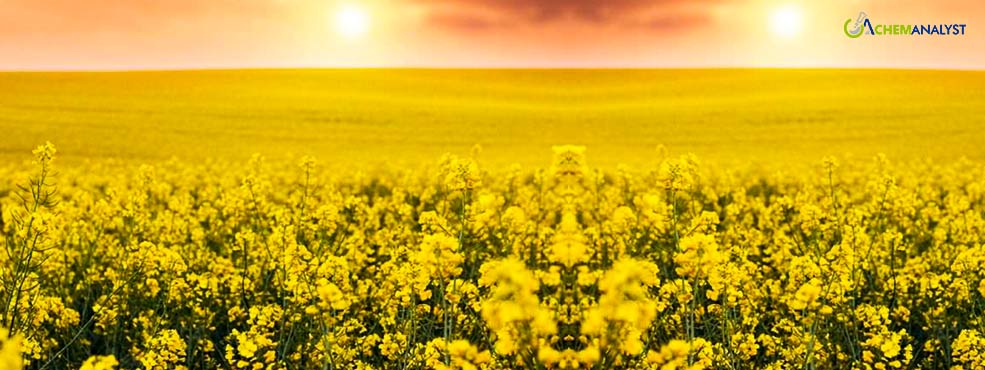Welcome To ChemAnalyst

In the ongoing crop year spanning from July to February, rapeseed imports in the European Union (EU-27) totalled 3.5 million tonnes, marking a significant decline of one-third compared to the previous year's volume. This noteworthy reduction has garnered attention, particularly as the imports during the preceding season surpassed those of the 2021/22 season by a substantial 6%.
Despite geopolitical challenges, Ukraine, a key player in the rapeseed market, has maintained its dominant position among EU rapeseed suppliers in the current crop year. Ukraine's contribution stands at 2.4 million tonnes, reflecting a modest decrease of just under 13% compared to the corresponding period in the previous year. Remarkably, Ukraine's share in EU rapeseed imports has risen to 67%, a notable increase from the 52% share recorded in the 2022/23 season.
Australia, despite experiencing a smaller harvest, remains a significant player as the second most crucial supplier of rapeseed to the EU. The country contributed 768,000 tonnes, securing a 22% share in the EU's rapeseed imports. It's worth noting that this figure represents a substantial decrease from the 2 million tonnes delivered by Australia in the prior crop year, underscoring the impact of harvest variations on trade dynamics.
Conversely, rapeseed imports from Canada witnessed a sharp decline, plummeting from 230,800 tonnes in the previous year to a mere 42,500 tonnes in the current crop year. This substantial reduction has resulted in Canada's share in the total EU rapeseed imports dropping from its previous standing, marking a notable decrease of 3 percentage points to reach 1.2%.
The dynamics in EU rapeseed imports reflect the intricate interplay of multiple factors, including geopolitical events, harvest variations, and changing trade patterns among key supplier nations. The resilience of Ukraine as a primary supplier despite ongoing geopolitical challenges underscores its strategic importance in the EU's rapeseed supply chain. Australia's continued significance, albeit with reduced volumes, highlights the impact of harvest conditions on global trade dynamics.
On the flip side, the sharp decline in rapeseed imports from Canada emphasizes the susceptibility of trade flows to external factors, potentially influenced by factors such as harvest outcomes, market conditions, and global trade dynamics. Moldova and Serbia's increased roles in supplying rapeseed to the EU showcase the adaptability of trade relationships and the emergence of new players in response to market demands.
The nuanced landscape of EU rapeseed imports during the current crop year reflects the intricate dance of supply and demand, influenced by a myriad of factors. The data underscores the resilience of certain key players, the impact of harvest fluctuations, and the adaptability of trade relationships in response to changing market dynamics. As the crop year progresses, further insights may unfold, offering a comprehensive understanding of the evolving landscape in the EU rapeseed market.
We use cookies to deliver the best possible experience on our website. To learn more, visit our Privacy Policy. By continuing to use this site or by closing this box, you consent to our use of cookies. More info.
